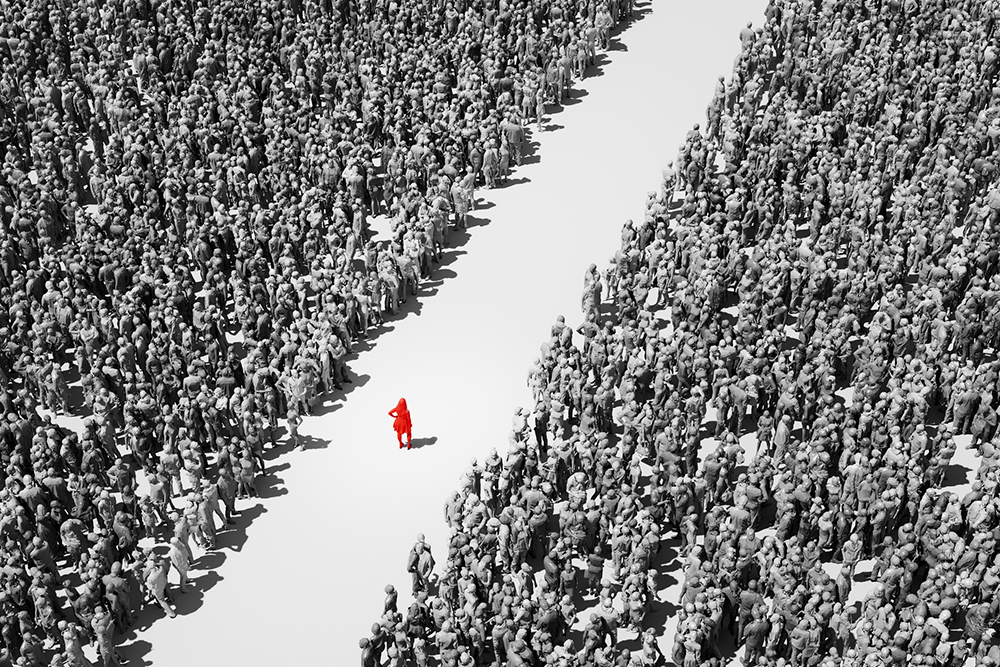The termination of US government funding for the two venerable radio stations Radio Free Europe (RFE) and Radio Liberty (RL) by Elon Musk’s Department of Government Efficiency (Doge) shows how blindly fanatical the Tesla owner’s axe-wielding has become.
Musk claims RFE/RL is run by ‘radical left crazy people talking to themselves while torching $1 billion a year of US taxpayer money’. But that is an ignorant distortion of the truth. For 75 years these beacons of open journalism have provided a lifeline for millions trapped inside dictatorial regimes – a necessary pro-democracy corrective to lies, propaganda and censorship.
The stations were originally created to serve audiences behind the Iron Curtain during the Cold War – RFE broadcast to Poland, Hungary, Romania, Czechoslovakia and Bulgaria, while RL broadcast to Russia – with a mix of news, analysis and cultural programming. They were staffed by journalists who were themselves émigrés from the Eastern Bloc. After the fall of communism in Europe, the stations recalibrated their mission.
They began broadcasting to the likes of Iran, Iraq, Afghanistan, Belarus, and the Stans of the Caucasus. The Russian service also carried on apace, thanks to Putin’s despotism. In the end it reached 23 countries, broadcasting in 27 languages. If soft power means anything at all, it is this.
My dismay at Musk taking a wrecking ball to these vital stations is coloured by my family’s close association with them. My father was a writer and broadcaster at RFE for over thirty years, from soon after our arrival in America as Hungarian refugees following the 1956 Revolution, until his retirement in the late 1980s. Some of my early memories revolve around the anecdotes he told about his multifarious assignments.
He often interviewed famous Hungarian émigrés, such as the physicist Edward Teller, known as ‘the father of the hydrogen bomb’. My father once picked him and his wife Mici up from the airport and drove them to their Manhattan hotel. It was a cold winter’s evening and the heating in my dad’s humble old Volkswagen Beetle was struggling.
‘In the front, Teller was lauding the latest advances in science and technology,’ said my father, ‘while from the back seat Mici piped up every so often to ask in a sad little voice whether I could turn up my antiquated heating. The irony wasn’t lost on me.’
For two years in the mid-1960s my father was sent from New York to work at RFE’s headquarters in Munich. Our family relocated. President John F. Kennedy was shot in Texas at lunchtime on 22 November, 1963, but for us it was already early evening and we were sitting down to dinner. The phone rang, and the world seemed to abruptly change. My father was called in to work and spent the whole night writing and broadcasting stories on the dramatic event. He returned, shattered, sometime the next day. So yes: I do remember where I was when I heard that Kennedy was shot.
The world still needs this champion of unfettered journalism
In 1970 we moved again, this time to London, where for a few years my father ran the ‘Hungarian desk’ of the RFE office on Oxford Street. Occasionally I’d meet him there at lunchtime, when he would share with me the snack he’d brought from home: a few pieces of toast with a few slices of salami. This would be washed down with lemon tea. I loved the little office and the recording studio with its two good-natured Cockney sound engineers, and the editing machine on which those big old-fashioned tapes were cut and spliced together.
When I was 20 a producer at Munich HQ asked whether I’d like to work for them as well. There was a weekly show for young people in Hungary, called Teenager Party, which could use a regular ten-minute feature from London. I could do interviews, expound on the cultural scene, or think up whatever quirky stuff I fancied. My dad got me a little portable recording machine and off I trotted. I had fabulous fun, and got paid for it.
I once decided it would be interesting to stop people in a particular street and ask them whether they knew how the street got its name. I chose Manette Street, off Charing Cross Road. I accosted at least twenty passers-by with my microphone, who all gave me shrugs and blank looks, until a middle-aged gent told me, ‘It’s named after Dr Manette, from the Dickens novel A Tale of Two Cities, because he lived here.’ Bingo!
I interviewed actors (like the lovely Vincent Price), the odd pop star (who remembers Barry Blue and his 1973 hit Dancin’ on a Saturday Night?) and reviewed new movies. I still have a bundle of fan letters sent from my young Hungarian listeners during the 18 months of my RFE career. As a banned station, it was constantly jammed to make it hard to listen to. But the kids managed to tune in anyway, so eager were they to hear the voice of the West. Their letters were posted to an anonymous PO box, so that they wouldn’t get into trouble. I was moved, but also saddened by this correspondence; it was like hearing from the wrongly imprisoned.
Those prisoners are free now. But the 50 million or so to whom RFE/RL continues to speak today are not. The world still needs this champion of unfettered journalism. Tragically, Musk and his boss Donald Trump seem intent on throwing this precious baby out with the bath water.








Comments